In this wide-ranging interview, veteran educational campaigner Gus John [1] draws connections between initiatives currently pursued by three government departments (education; children and families; culture, media and sport), and lays out what the government has in store for anti-racism, particularly Black Lives Matter.
Liz Fekete: The Coalition of Anti-Racist Educators and the Black Educators Alliance are challenging the DfE’s new guidance on the teaching of relationships and sex education (RHSE). While much has been said already about the implications of the guidance for any organisation deemed ‘anti-capitalist’, there are also disturbing implications for anti-racism teaching in schools. We really wanted to have your take on this, but also on the growing momentum around school exclusions, and the way that the government, and other vested interests, are pushing back.
Gus John: Let’s take the second issue first. Coincidentally, IRR published its excellent report by Jessica Perera on How Black working-class youth are criminalised and excluded in the English school system in the same week that the BBC focused upon the work of Kiran Gill and ‘The Difference’ in its magazine programme ‘The Spark’ (BBC Sounds). In 2017, Gill authored an Institute for Public Policy Research (IPPR) report on school exclusions which Jessica describes in IRR’s report as an attempt to legitimise and rebrand the PRU [Pupil Referral Unit] sector. Quite clearly, Gill, who wants to expand and professionalise the sector, opposes the perspectives of people like you and we in the Communities Empowerment Network (CEN), who would like to see all children kept within mainstream education and have their diverse and often complex needs met there. Gill says she does not believe in ‘Nil Exclusions’ as exclusions are a ‘necessary management tool’. There is a danger, however, that her approach could be seen as helping to institutionalise the two-tier schooling system and equipping those who run PRUs and other alternative provision to do so better and enhance the life chances and career prospects of excluded students. This approach, by implication, appears to have no problem with schools’ ‘zero tolerance’ policies and exclusion practices, even though Gill gives many examples of events in children’s lives that might trigger bad behaviour and she is focused on helping schools to better spot and respond appropriately to such events.
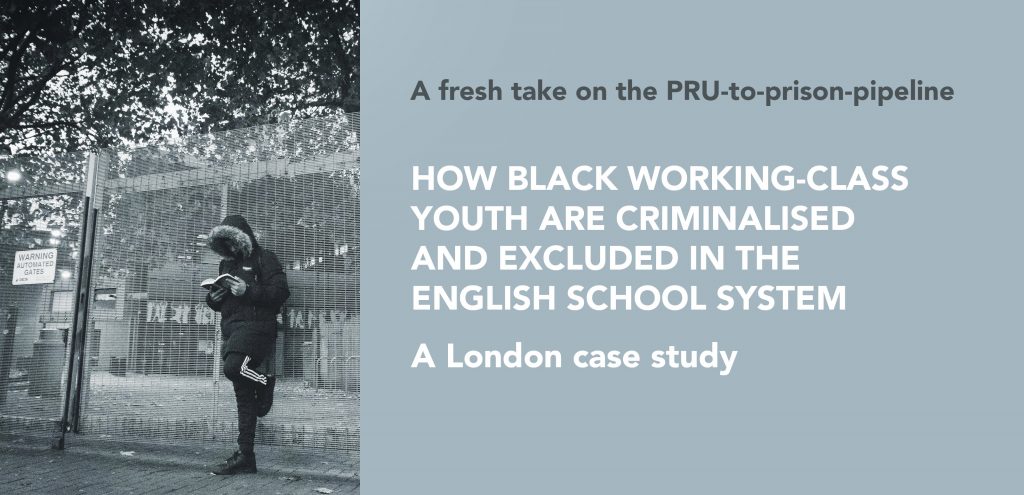
Liz Fekete: But this isn’t just a matter of the views of Kiran Gill is it, isn’t there now a huge market in Alternative Provision?
Gus John: Indeed – and we need to look at the source. In 2008, the Department for Children, Schools and Families (DCSF) committed itself in a White Paper, Back on Track: A strategy for modernising alternative provision for young people, to ‘transform the quality of alternative education for those who are excluded from, or who for some other reason are unable to attend school’. It allocated £26.5 million to fund twelve innovative pilot projects ‘to develop best practice and encourage greater diversity in alternative provision’. That money was not used to ensure that mainstream schools could provide appropriate levels of educational support to meet the needs of children who might otherwise be excluded. Those of us who studied that White Paper had cause to ‘smell a rat’ when the government emphasised its intention to encourage greater diversity in alternative provision.
The government was anticipating a huge spike in the number of excluded students as a consequence of its academy expansion programme and its encouragement to schools to adopt a ‘zero tolerance’ approach to disruption. ‘Encouraging greater diversity’ was therefore effectively a less crude way of describing the process of opening up alternative provision to ‘the market’ and encouraging all sorts of providers to enter that market and help contain young people excluded from school and those who typically voted with their feet and resisted schooling for any number of reasons.
Liz Fekete: But this all seems so reminiscent of Prevent, where those of us campaigning against its obvious harms have been obstructed by ‘experts’ and ‘practitioners’ who have a material investment in the expansion of counter-radicalisation policies?
Gus John: Alternative education provision is now a lucrative industry and a staple in the schooling and education market. Those making such provision are not held to their legal requirement to comply with the Public Sector Equality Duty of the Equality Act 2010. And if one were to conduct extensive qualitative research among young offenders in young offender institutions (YOI), one would find ample evidence to demonstrate that for far too many young people the alternative provision was little more than the ante-chamber to the YOI. When one considers the ethnic and social class profile of those most excluded from school, those disproportionately represented in YOIs and the prison system generally, of those with the greatest child and adolescent mental health challenges, there can be no question that there is an ethnic penalty that is structurally imposed on that section of the population pretty much from birth.
Many in the alternative provision industry appear to eschew institutional and structural considerations, preferring to believe that poor mental health is at the root of the infractions that lead to students being excluded. Schools are increasingly being encouraged to adopt an approach to school exclusion that pathologises young people and labels them and their offending behaviour as having a causal relationship to mental illness, or to failure to deal with trauma in their domestic or street/community environment. In other words, exclusion is necessary so that schools could get on with teaching ‘normal’ children who are not beset by problems that get in the way of their learning. But surely, no society should factor in alternative provision as a basket to catch children who might otherwise be written off by the schooling system for having complex needs and/ or being socialised within damaging environments. I believe it calls into question what school is for when the DfE’s own statistics demonstrate a year-on-year increase in the number of children with special educational needs and disabilities excluded from school.

Liz Fekete: Let’s turn now to the DfE guidelines which have incensed so many. When I first read them, I couldn’t quite take them seriously, because they seemed so perverse, so obviously unreasonable, in the sense that on the one hand you got this high-minded language about the need to protect freedom of speech and end censorship (of ‘cancel culture’) and then you have this attempt to cancel out whole swathes of critical, non-violent opinion. But then I realised the dangerous contradiction between the status of the guidance – the fact that it’s non-statutory and so schools are not obliged to follow it – and the language of the relevant sections (on using external agencies and choosing resources), both of which say ’schools should not under any circumstances’ work with agencies or use resources from organisations that take ‘extreme political stances’.
Gus John: I share your feelings about this. On the one hand, it is not an outright ban, on teaching anti-capitalism, for instance. On the other hand, the issue of the guidelines being non-statutory is really a moot point because of the dire warnings given to schools as to what they can and cannot do. The government knows that most schools would toe the line rather than pick a fight with them – and more’s the pity, considering our responsibilities as educators. Any teacher teaching RHSE who does not assist their students in understanding the impact of COVID on global capitalism, while challenging them to consider what this means for the world order that might emerge from this crisis, would be negligent in my view. So would any teacher who fails to encourage their students to think deeply about the refugee and asylum crisis in Europe and the disgraceful pronouncements of the shameless Priti Patel in relation to same in the context of the ‘bona fide’ asylum seekers/economic migrants binary and the freedom with which capital relocates itself worldwide to exploit cheap and surplus labour, while workers chasing capital and bread, justice and freedom in the global North are seen as pariahs to be detained as criminals.
Liz Fekete: So what would your advice to teachers be vis-à-vis this non-statutory guidance?
Gus John: The guidelines as framed do not prevent imaginative teachers from doing or continuing to do what I have outlined above, except that the DfE’s ideological thought police would be on the lookout for teachers who by their use of particular material would be deemed to be failing to demonstrate ‘political impartiality’ as Gavin Williamson would have it. Worse yet, the guidance states: ‘Schools should not under any circumstances use resources produced by organisations that take extreme political stances on matters. This is the case even if the material itself is not extreme, as the use of it could imply endorsement or support of the organisation’. The government has not proscribed Black Lives Matter (BLM) or Extinction Rebellion (ER). The legal position is therefore that it cannot debar schools from using curricular material which teachers in their professional judgment deem satisfactory and age-appropriate. Assuming, for example, that BLM were to commission me to write some material suitable for students 16+ as well as for FE, HE and the general public and I were to do so using as source material: Williams’ Capitalism and Slavery, Rodney’s How Europe Underdeveloped Africa, Tharoor’s Inglorious Empire, Chinweizu’s The West and the Rest of Us and Streeck’s How Will Capitalism End?, why should any school or college be prohibited from using that material simply because the government believes that to do so would signal endorsement of BLM, when BLM is not a banned organisation? The whole thing is utterly preposterous and ripe for legal challenge. The only problem is that few schools if any would be inclined to bring a test case, especially in this climate. It is something, however, that teaching unions should seriously consider.
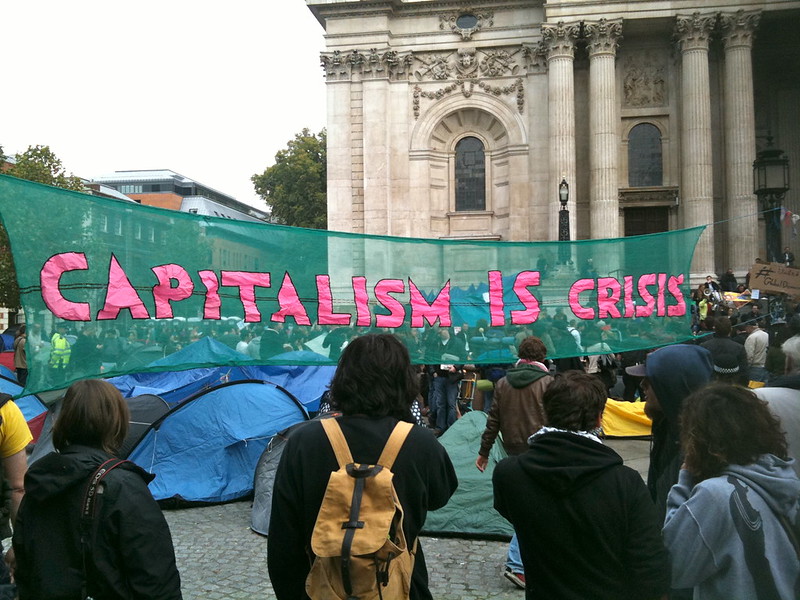
Liz Fekete: But will heads be concerned that failure to apply the guidance will impact on an Ofsted inspection?
Gus John: It would be interesting to see whether the DfE requires/instructs Ofsted to tweak the inspection framework to reflect schools’ compliance with these guidelines. I have no evidence that this has happened or is about to happen. If it does, I hope it will trigger COVID-scale disruptions in the schooling system.
Liz Fekete: What do you think lies behind these extraordinary guidelines? Are there any parallels with the actions of other government departments?
Gus John: My view is that this entire thing is one prong in a multidimensional approach by Boris Johnson and his government to clip the wings of the Black Lives Matter movement and of Extinction Rebellion. All his ministers are working to the same script. Nick Gibb (minister of state for school standards) wants to outlaw material from BLM and ER. On 22 September, Oliver Dowden (secretary of state for culture, media and sport) sent a letter to a number of national museums and galleries as well as other Arm’s Length Bodies [independent organisations that deliver a public service], inviting them to share what contested heritage means in the context of their organisation. In that letter, which was accompanied by a DCMS press release, Dowden cited Historic England, as the Government’s adviser on the historic environment, to justify his argument that removing difficult and contentious parts of history risks harming our understanding of our collective past. He makes it clear that rather than ‘erasing’ objects, he wants to see them contextualised. But what does he mean by contextualisation? Clearly, he means something quite opposite to what we would mean. Let me quote the letter:
‘As set out in your Management Agreements, I would expect Arm’s Length Bodies’ approach to issues of contested heritage to be consistent with the Government’s position. Further, as publicly funded bodies, you should not be taking actions motivated by activism or politics. The significant support that you receive from the taxpayer is an acknowledgement of the important cultural role you play for the entire country. It is imperative that you continue to act impartially, in line with your publicly funded status, and not in a way that brings this into question.’
And here comes the not-so-veiled threat:
‘This is especially important as we enter a challenging Comprehensive Spending Review, in which all government spending will rightly be scrutinised.’
The DCMS press release further noted that ‘The letter was sent to a number of national museums and galleries as well as other Arm’s Length Bodies’ who were invited to share what contested heritage means in the context of their organisation.’[2] One of those recipients sticks out like a sore thumb – the Charity Commission. The Charity Commission is a regulator of registered charities. It has no statues eligible for pulling down and no artefacts that might constitute contested heritage. So, why is it on this list – unless to signal that the minister expects it as part of its regulatory function to scrutinise very closely the activities of charitable bodies, including those listed, as far as responding to external calls to decolonise and to debunk, or indeed making such demands, is concerned.
Liz Fekete: But would the Charity Commission really get embroiled in this? I know that you are already in dispute with them over their handling of the Just West Yorkshire report – could you tell us briefly where you are at with that?
Gus John: I lodged a complaint against the CC on 26 June 2020, following their publication on 4 June of a regulatory case review report on the charity Just West Yorkshire. Just West Yorkshire had published the results of research they had done to assess the impact on the Rotherham Muslim community of local MP Sarah Champion’s article in the Sun on 10 August 2017 in which she stated that ‘British Pakistani men are raping and exploiting white girls… and it’s time we faced up to it …’. I wrote the foreword to the Just West Yorkshire report and noted that the MP had chosen to make those remarks on the second anniversary of the racist murder of 81-year-old Mr Mushin Ahmed, who had been attacked and kicked within an inch of his life by neo-fascists and called a groomer on his way to mosque, and that she could not have been unaware of the circumstances of the murder of Joanne Cox MP on 16 June 2016. The Charity Commission’s case review report criticised Just West Yorkshire for publishing the foreword, noting that ‘Any suggestion of an association between remarks made by the MP and these murders would appear to be entirely without basis given that both incidents occurred before the MP’s remarks were made.’ In its statement to the media, the Commission’s press department used even more grotesque wording: ‘The report also appeared to baselessly link two murders to remarks made by Sarah Champion MP.’ The Charity Commission has since conceded that these allegations were ‘inaccurate’ and ‘unhelpful’. I have written to the Commission demanding that they withdraw their seriously flawed and actionable report, get the media to correct the inaccuracies they were fed and apologise to me and Just West Yorkshire. I await their response.
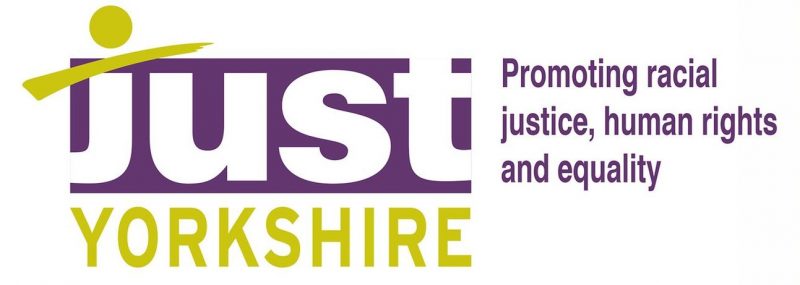
Liz Fekete: Going back to your main thesis, that the DfE guidelines are a way of attacking Black Lives Matter – do you have any more evidence of this?
Gus John: Only a few days ago, in her Tory conference speech, home secretary Priti Patel reserved her ire for Black Lives Matter and Extinction Rebellion, using language such as ‘thugs’ and ‘mobs’ to describe their recent protests. Let me quote again:
‘It is not acceptable for mobs to tear down statues and cause criminal damage across our streets. And it is not acceptable for thugs to assault our police officers, just for doing their job.’
She said police had the ‘backing of our party, our Government and our Prime Minister’ in their efforts to police the demonstration. ‘This Government will always defend the right to protest. That right is a fundamental pillar of our democracy, but the hooliganism and thuggery we have seen is not – it is indefensible.’
The reason for the Black Lives Matter movement coming into being at all and activating itself post-George Floyd is clearly of no consequence to Priti Patel, nor presumably is the scandalous number of black people, males predominantly, who have died while in the custody of the state over the last four decades without anyone being brought to justice and with the state maintaining that ‘deadly silence’ the IRR wrote about nearly thirty years ago. [3]
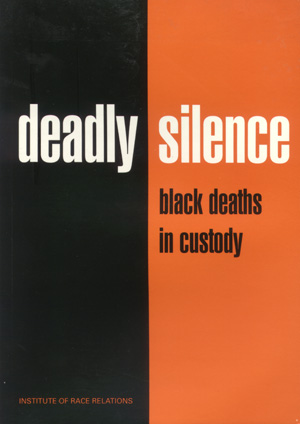
Liz Fekete: What would be your final message here to IRR News readers?
Gus John: In summary then, this is the increasingly authoritarian state trying to tell BLM ‘we’re coming for you’. They are letting black campaigners know, we want to put you on the Prevent list and treat you as enemies of the state and of wider law-abiding society.
This, I fear, is the thin end of the wedge as far as the drift into totalitarianism is concerned. I would be delighted to be proven wrong, but it would not surprise me in the least if at least 50 percent of the strictures that have been introduced as a consequence of COVID are not written into law to hem us in for all time, thus curtailing many of our hard-won freedoms, while civil society feels it has to be similarly authoritarian, snooping and snitching on neighbours and seeking to criminalise every single non-conformist behaviour.
So, we must never fail to be vigilant and to see the connection between these seemingly consensual things. Above all, we need to take collective action and demonstrate to Boris Johnson and his government that we will not stand by and let them harass and curtail the freedoms of Black Lives Matter.
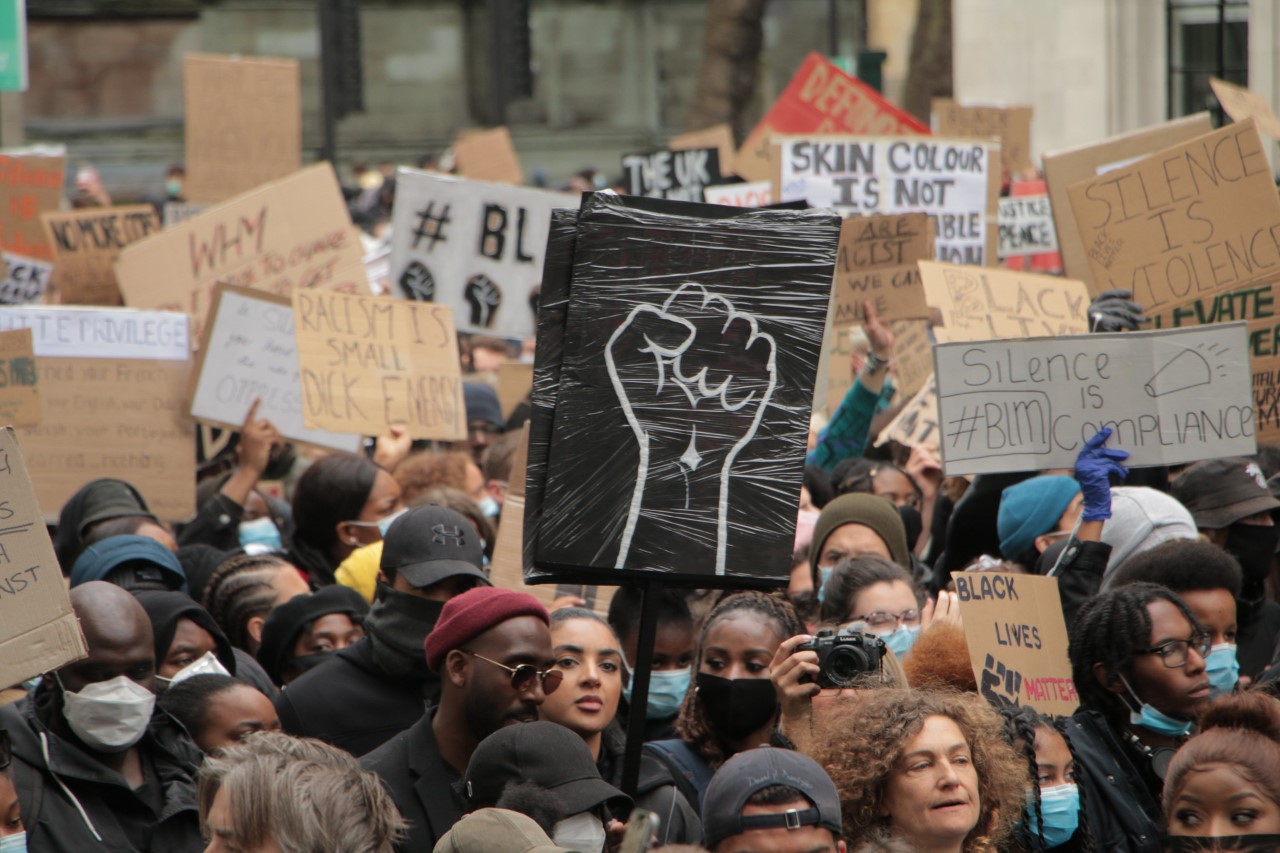
Footnotes
[1]
Professor Gus John is a lifelong campaigner for children’s education rights, a visiting professor at Coventry University and associate professor at the UCL Institute of Education. In 1999, he co-founded the Communities Empowerment Network (now INCLUDE, which he currently chairs), a charity that provides advocacy and representation for excluded students and their families. He was the first black director of education in the UK (1989-1996) as director of education and leisure services in the London Borough of Hackney.
[2]
The full list of recipients is as follows: Arts Council England, British Film Institute, British Library, British Museum, Charity Commission, Churches Conservation trust, Historic England, Historic Royal Palaces, Horniman Museum, Imperial War Museum, Museum of the Home, National Archives, National Gallery, National Lottery Communities Fund, National Lottery Heritage Fund, National Museums Liverpool, National Portrait Gallery, Natural History Museum, Royal Armouries, Royal Museums Greenwich, Royal Parks, Science Museum Group, Sir John Soane’s Museum, Tate Gallery, V&A Museum and Wallace Collection.
[3]
Deadly silence: black deaths in custody, IRR, 1991.


Great interview! Scary new world of degraded liberties… Is there the will or energy to push back?
This is an absolutely superb analysis of the current political climate. Thanks you Prof Gus John for sharing your thoughts with such clarity and rigour. Thank you IRR for your consistent ethical stance on the side of justice and often leading and filling the political void many expect to be filled by the left leaning mainstream media who are in truth have become mainly centrist cheerleaders without a cause.
A good evening to All,
I keep telling folk that one might as well live in China or Russia, one then knows what is allowed. As I try to absorb this eloquent analytical dissection of my Professor, I recall the nature of the beast. Threatening with sanctions of funding! We work! We have paid taxes, we are owed, even where it it redirected via Charities!
Thank you Gus, your far-reaching insightful rebuttal. As an Educator par excellence … where would we be without the IRR to monitor and be provide clarity and answers, not just to government and it’s controlling tentacles but also to guide us, in order that we can prepare; “ as part of civil society” to occupy spaces and take extensive “collective action” to this counter these forces, so detrimental to our progress. My only joiner is how are we to motivate, we lack the confidence; of Parents, Carers , Teachers as Advocates to tackle these extreme “mandatory” rules/suggestions?
Listen to the language used against us, constantly labelling, to set the tone, to “charge the atmosphere” undermining of our freedoms, the monumental rise of the BLM Movement has shaken and rattled the powers that be but we will not give up nor give in! Next steps we will take is in our discussions and the role we play as Educators and Activists in our Communities.
Thank you to Liz Fekete for asking really important and layered questions and thanks to Gus John for responding, as ever, with such a clear political analysis.
As someone who has worked with young people over many years as a youth worker, teacher in F.E. and more recently as a mentor in a secondary school, I have seen how the system too often works against the rights of the very people it is supposed to be educating and nurturing.
As a union rep, I also learnt how employees in the education sector are perceived and treated when they dare to challenge discriminatory practice wherever it may exist.
It is vital that young people are encouraged to use their voices and that they are listened to. For this to happen, the staff educating and supporting them must have the confidence to challenge abuses of power and the structural inequalities that operate in this sector.
Through organised, collective action, trade unions can protect not just the rights of workers but the rights of the young people in their care.